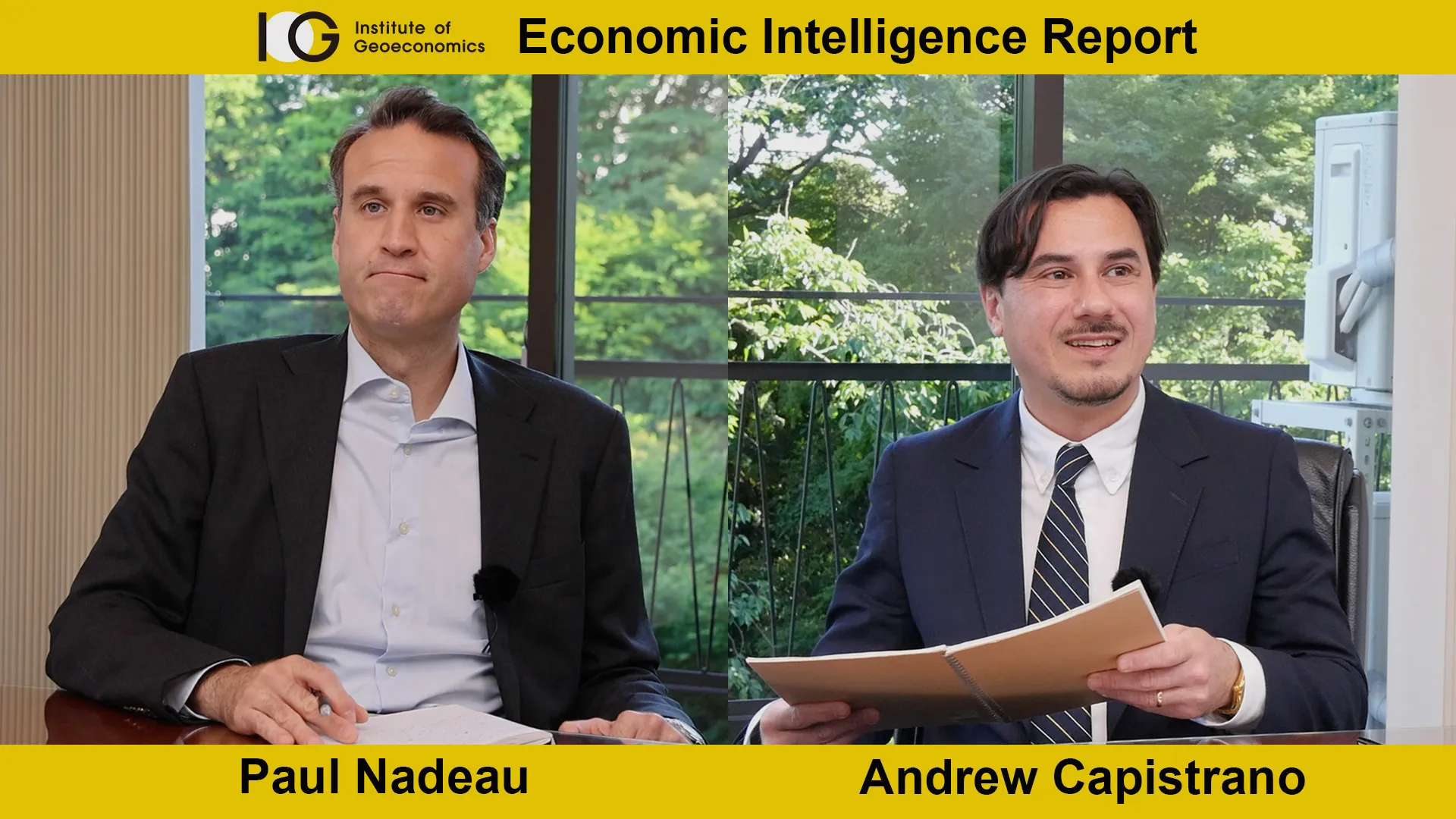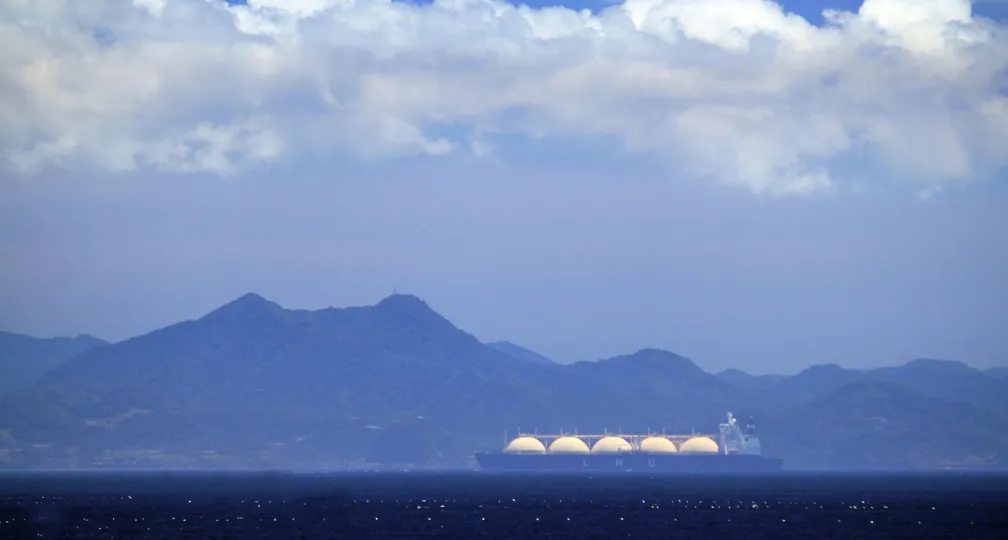IOG Economic Intelligence Report (Vol. 3 No. 16)

The latest regulatory developments on economic security & geoeconomics
By Paul Nadeau, Visiting Research Fellow, Institute of Geoeconomics (IOG)
Commerce & State Coordinate on New Rules: The U.S. State Department and U.S. Commerce Department announced proposed rules on July 29 that would enhance restrictions on exports, reexports, or support to military or intelligence end users and end uses in countries of concern. More specifically, the State Department’s Directorate of Defense Trade Controls (DDTC) has proposed a rule that would expand the definition of “defense services” to include the furnishing of intelligence-related assistance, while the Commerce Department’s Bureau of Industry and Security (BIS) has proposed two rules seeking to provide BIS with the authority to impose controls on the activities of U.S. persons, wherever located, relating to foreign military services, foreign intelligence services, and foreign security services.
WTO Members Reach Deal on Digital Commerce: On July 26, 91 members of the World Trade Organization (WTO) reached an agreement on a set of global rules to govern digital commerce. The rules, the product of five years of negotiations, include items like a prohibition on tariffs on electronic transactions, a pledge to eliminate paper forms and documents to transition to electronic forms, and rules governing the recognition of e-signatures and other measures to protect against online fraud. There are concerns about the agreement from many WTO members not involved in the negotiations, such as India, Indonesia, and South Africa which is opposed to any effort to eliminate tariffs on electronic transactions, while economies such as Brazil, Turkey, and the United States withheld support due to outstanding domestic concerns.
Several U.S. States Begin Divestment from China: Five U.S. states (Florida, Indiana, Kansas, Missouri, and Oklahoma) and the Federal Retirement Thrift Investment Board, the main U.S. federal government pension fund, have directed state fund administrators to begin divesting from China over the past year. Many state pension funds invested in Chinese companies taking advantage of China’s rapid economic growth, with U.S. public pension and university endowments investing approximately $146 billion in China- and Hong Kong-based companies between 2018-2022, but domestic political controversies over the U.S. relationship with China has led many state officials to seek to divest from Chinese companies. These efforts are joined by 24 U.S. states passing laws to restrict foreign ownership of agricultural land in response to concerns about ownership of land in close proximity to military bases or other sites sensitive to U.S. national security.
U.S. Blocks WTO Panel on IRA: The United States blocked China’s request for a WTO dispute settlement panel to investigate whether the U.S. Inflation Reduction Act of 2022 (IRA) violates international trade rules. China will be able to make a second request to establish a panel, which the United States will be unable to block, at the next WTO Dispute Settlement Body meeting on September 23.
Analysis: Industrial overcapacity and domestic consumption in China
By Andrew Capistrano, Visiting Research Fellow, Institute of Geoeconomics (IOG)
Since spring 2024, Washington and Brussels have increasingly accused Beijing of maintaining a growth model that relies too heavily on exporting its ‘excess capacity’ to the world. This argument has come across most clearly in the context of electric vehicles (EVs), but it extends to other ‘green technologies’ such as advanced batteries, wind turbines, and solar panels—all sectors in which China has a growing global share if not outright market dominance. Therefore, it is understandable that Chinese officials (including Xi Jinping) have countered that such ‘excess capacity’ or ‘overcapacity’ concerns are unfounded, and that the surge in China’s exports merely reflects its ‘comparative advantage’ and ability to outcompete the West.
It is certainly true that the US and EU are worried about the implications of China dominating the advanced technologies of the future, particularly amid the current backdrop of heightened geopolitical competition. But this is not the only reason why China’s trading partners are concerned. Although the issue of ‘overcapacity’ in these cutting-edge sectors may get the most attention, the real source of Western concerns is a longstanding structural imbalance: in order to reach the government’s growth targets China must maintain huge trade surpluses, for the simple reason that its comparative advantage in manufacturing depends on relatively low wages, and thus its consumers lack the spending power to absorb what the Chinese economy produces.
This is why China has struggled to implement the ‘dual circulation’ policy first announced in May 2020. For ‘external circulation’ through world markets to be profitable, household income must grow slower than overall GDP to keep Chinese goods competitive; yet to raise ‘internal circulation’ via increased domestic consumption, income must grow faster than GDP to stimulate demand. The contradiction between these two objectives essentially forces the Chinese government to choose between international trade competitiveness and a stronger domestic consumer base as the means of hitting its 5 percent GDP growth target.
In hindsight, ‘dual circulation’ did not adequately address this contradiction. At the time, when trade tensions with the US were rising, it made sense to advance an economic strategy that did not depend solely on foreign markets but simultaneously attempted to foster domestic demand. Yet in the second quarter of 2024 industrial output and exports were the main drivers of Chinese growth (which at 4.7 percent, the slowest since the first quarter of 2021, still missed the 5 percent target). Production has greatly outpaced consumption in large part because domestic business and consumer sentiment is at near-record lows, with retail sales recently reaching an 18 month nadir. These deflationary pressures have forced businesses to cut prices. In fact, the ‘price wars’ inside China illustrate how ‘excess capacity’ is a concern not only for world, but also for Chinese producers struggling with reduced domestic profit margins as well.
Viewed from this perspective, China’s industrial ‘overcapacity’ and its low consumption rate are two sides of the same coin. Both contribute to China’s swelling trade surplus, since ‘excess capacity’ must be exported while low consumption and ‘price wars’ create a shrinking market for imports. The second quarter of 2024 actually saw imports contract at a faster pace than in the previous quarter, falling 2.3 percent year-on-year, at the same time as exports rose 8.6 percent year-on-year. In short, Beijing has clearly opted to choose trade competitiveness over spurring domestic demand.
But behind this dynamic is the Chinese government’s investment strategy, constrained by the 5 percent growth target. China’s investment share of GDP, over 40 percent, is relatively high when compared to that of other export-oriented economies (such as Germany and Japan, which hover between 20 and 30 percent). After ending its ‘Zero-Covid’ policy, this investment shifted from the increasingly non-productive housing and infrastructure sectors into advanced technologies and industrial capacity. The subsequent manufacturing boom has delivered many successes, most notably in the auto sector; however, any hope that it would produce a corresponding increase in domestic consumption has failed to materialize. Rather, Chinese auto exports have increased from roughly a million cars a year in 2020 to nearly six million by the start of 2024, lending support to the West’s ‘overcapacity’ narrative.
Of course, China will not change its investment strategy as a result of US and EU complaints, even if there is a limit to how much of China’s ‘excess capacity’ they are willing absorb before enacting protectionist measures. But there is reason to believe Beijing recognizes that low domestic consumption now presents a major threat to its growth model.
This is because China’s economic dependence on investment has also led to accelerating debt, which continues to outpace growth. Importantly, many Chinese economists realize that it will not be possible to lower China’s investment share of GDP and address this debt problem without either increasing the consumption share of GDP or abandoning the 5 percent growth target. Since the latter option is politically sensitive, China can be expected to enact policies that make consumers more willing to spend.
Nevertheless, the US and EU should not necessarily assume these policies will reduce China’s ‘excess capacity’. The communiqué released after Third Plenum concluded in July indicates that in addition to stimulating demand and reducing debt risks, China will continue to modernize its industries to unleash ‘new quality productive forces’. The government followed this up by issuing RMB 300 billion in ultra-long-term bonds to fund equipment upgrades and consumer goods trade-ins, although the balance between these two objectives tilts heavily in favor of industrial upgrades. These signals make it clear that despite a greater emphasis on demand-side measures, Beijing still sees supply-side investment as its chief growth engine. And until the Chinese government decides to shift its preference from trade competitiveness in ‘external circulation’ toward fostering ‘internal circulation’ with higher domestic consumption, its trade partners should not expect that its bilateral surpluses with them will decrease. Likewise, China can expect that Western complaints about its ‘overcapacity’ will only get stronger as long as exports and investment continue to drive growth.
Disclaimer: The views expressed in this IOG Economic Intelligence Report do not necessarily reflect those of the API, the Institute of Geoeconomics (IOG) or any other organizations to which the author belongs.
API/IOG English Newsletter
Edited by Paul Nadeau, the newsletter will monthly keep up to date on geoeconomic agenda, IOG Intelligencce report, geoeconomics briefings, IOG geoeconomic insights, new publications, events, research activities, media coverage, and more.



Visiting Research Fellow
Paul Nadeau is an adjunct assistant professor at Temple University's Japan campus, co-founder & editor of Tokyo Review, and an adjunct fellow with the Scholl Chair in International Business at the Center for Strategic and International Studies (CSIS). He was previously a private secretary with the Japanese Diet and as a member of the foreign affairs and trade staff of Senator Olympia Snowe. He holds a B.A. from the George Washington University, an M.A. in law and diplomacy from the Fletcher School at Tufts University, and a PhD from the University of Tokyo's Graduate School of Public Policy. His research focuses on the intersection of domestic and international politics, with specific focuses on political partisanship and international trade policy. His commentary has appeared on BBC News, New York Times, Nikkei Asian Review, Japan Times, and more.
View Profile
Visiting Research Fellow
Andrew Capistrano is Director of Research at PTB Global Advisors, a Washington DC-based geopolitical risk consulting firm. Specializing in economic competition between the US/EU and China, he analyzes how trade, national security, and industrial policies impact markets, and his firm’s clients include Japanese corporations and government agencies. He previously worked in Tokyo at the US Embassy’s American Center Japan and as a research associate at the Rebuild Japan Initiative Foundation / Asia-Pacific Initiative. Dr Capistrano holds a BA from the University of California, Berkeley; an MA in political science (international relations and political economy) from Waseda University; and a PhD in international history from the London School of Economics. His academic work focuses on the diplomatic history of East Asia from the mid-19th to the mid-20th centuries, applying game-theoretic concepts to show how China's economic treaties with the foreign powers created unique bargaining dynamics and cooperation problems. During his doctoral studies he was a research student affiliate at the Suntory and Toyota International Centres for Economics and Related Disciplines (STICERD) in London.
View Profile-
 Japan’s Sea Lanes and U.S. LNG: Towards Diversification and Stabilization of the Maritime Transportation Routes2026.02.24
Japan’s Sea Lanes and U.S. LNG: Towards Diversification and Stabilization of the Maritime Transportation Routes2026.02.24 -
 Fed-Treasury Coordination as Economic Security Policy2026.02.13
Fed-Treasury Coordination as Economic Security Policy2026.02.13 -
 What Takaichi’s Snap Election Landslide Means for Japan’s Defense and Fiscal Policy2026.02.13
What Takaichi’s Snap Election Landslide Means for Japan’s Defense and Fiscal Policy2026.02.13 -
 Challenges for Japan During the U.S.-China ‘Truce’2026.02.12
Challenges for Japan During the U.S.-China ‘Truce’2026.02.12 -
 India and EU Sign Mother of All Deals2026.02.09
India and EU Sign Mother of All Deals2026.02.09
 Orbán in the Public Eye: Anti-Ukraine Argument for Delegitimising Brussels2026.02.04
Orbán in the Public Eye: Anti-Ukraine Argument for Delegitimising Brussels2026.02.04 Fed-Treasury Coordination as Economic Security Policy2026.02.13
Fed-Treasury Coordination as Economic Security Policy2026.02.13 When Is a Tariff Threat Not a Tariff Threat?2026.01.29
When Is a Tariff Threat Not a Tariff Threat?2026.01.29 Oil, Debt, and Dollars: The Geoeconomics of Venezuela2026.01.07
Oil, Debt, and Dollars: The Geoeconomics of Venezuela2026.01.07 India and EU Sign Mother of All Deals2026.02.09
India and EU Sign Mother of All Deals2026.02.09











